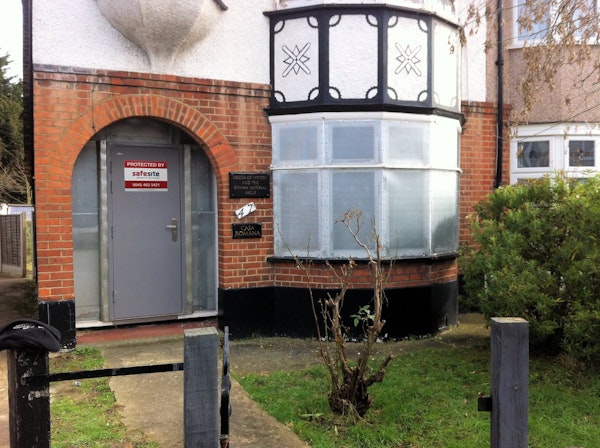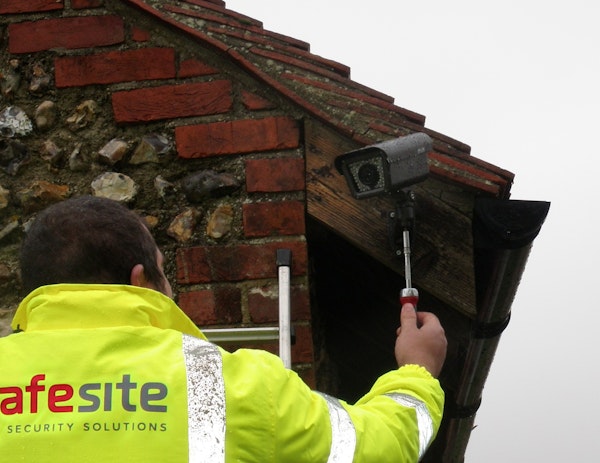- Fully qualified & insured teams
- Free site assessments
- Rapid response
- Rated Excellent
Your 4-step guide to empty property protection
Residential or commercial premises are a great asset that one hopes will continue to increase in value. When a property becomes vacant, it can become open to break ins, vandalism, squatters or just a general deterioration in condition. For this reason, it’s important to plan and protect against unexpected intruders, accidents or incidents.
There are parts of the UK which are particularly prone to extreme weather, and storm damage. In addition you may need to consider other factors:
- Utility damage – Leaks can be identified early when a property is occupied. However, in an empty property the problem can exist for a substantial period before being identified. The greater the time an issue goes undetected, the greater the degree of damage.
- Fire damage – A fire can quickly take hold. When a property is empty property, there is no-one to respond to early signs of smoke or flames. Smoke and water damage caused can be costly to fix.
- Fly tipping – Rubbish dumped on roads and land is a big issue for local authorities in England. In 2020-21 deal councils dealt with 1.13 million fly-tipping incidents, an increase of 16% on the year before. The cost of clearing ‘large incidents’ totalled £11.6 million. The most common site category was equivalent to a ‘small van load’ which can be costly for land and property owners to clear.
- Squatters – Empty properties can be a target for squatters. It is extremely difficult and costly to evict squatters and can cause considerable damage. The property can also become a hub of anti-social behaviour including malicious damage, theft of fixtures and amenities such as boilers, plumbing, metals and even fitted kitchens.
Your 4-step empty property protection guide
Owners and managers of vacant properties should have a plan for managing and protecting their property. Our property protection guide includes four key measures:
1) Avoid vacancy where possible
It is best to avoid leaving a property vacant for long periods. Some options are as follows:
- Property Guardians – this is where you enlist someone to live in the property. A quick search online will show you the options available, with options for free or ‘expenses only’ and daily fees. A property guardian will generally have the use of a bedroom, plus domestic amenities such as kitchen and bathroom. In this situation, rent may be negotiated or waived in return for maintaining areas of the property, such as the garden. Ensuring that an occupant is responsible for the general appearance of the property is invaluable. Getting a vetted guardian is a useful way to look over any plants, caring for pets, alert you or an agent of any problems.
- Lease your property to the council – a small number of councils in the UK run re-let schemes. Re-let schemes are where a private landlord rents a property to the council for a time (usually around 6 months). The property is then re-lets to council tenants. These schemes are in place where there is low housing stock and a high demand for social or subsidised housing. This is an effective way to prevent vandalism, squatter whilst also generating an income.
2) Secure the property
If your property has to be vacant, on a short- or long-term basis, there are still steps which can be taken to maximise security and minimise risk.
You can secure an empty property with the addition of security boards or screens to all access points. Outdoor lighting and CCTV cameras offer an excellent deterrent to anti-social behaviour or break-ins. You have different options for securing a property, these are:
- Timber boarding – Wood boards are a cost-effective way to secure a vacant property in the short term. Some examples of short-term needs are; after a fire, accident or tenancy gap.
- Steel security screens and security doors – Metal boards are a great solution for long term needs and they can be used repeatedly. Sitex screens offer the benefit of allowing light and ventilation. All our designs offer tamper-proof fixings and are damage resistant, even against attempted break-ins using crowbars and hacksaws. Steel security screens are ideal for property renovation where the property may contains items, or tools of value.
3) Check the property regularly
A schedule for inspecting a vacant property is important, and should include a checklist of these areas and tasks:
- Outside the property, be sure to check the:
- building and remedy any build-up of leaves or debris in the gutters and drains, which can result in damp and damage from leaks.
- roof for damage following any storms or seasonal weather.
- seals to letterboxes, access points and any security screens to ensure no tampering.
- boundary fencing to ensure the overall premises is fully intact.
- Inside the property, be sure to check the:
4) Install CCTV surveillance and/or alarms
Remote monitored CCTV and alarms are an effective way to ensure that the property is monitored around the clock. Monitored security also means that entire buildings can be observed for both short and long periods of time, to fit in with both temporary and long-term vacant periods.
Many companies, such as SafeSite offer wired and wireless options for surveillance and alarms. Surveillance cameras can be used in remote locations or areas of the property which are tucked away or hidden from sight. The following are some options available to you:
- 24-hour monitored CCTV – Contemporary CCTV systems offer on-site security with off-site or remote monitoring. Trained security staff can be deployed in the event of intrusion, criminal or suspicious activity at the property, and the police can be quickly alerted. Cameras can be panned and tilted to achieve the best possible surveillance, monitoring and recording of any situation, with recordings being retrievable to support police and insurance processes for evidence or identification purposes.
- 24-hour monitored alarm system – Whilst standard burglar alarms can of course deter burglars, monitored systems will alert trained security personnel as soon as a break-in is attempted. Monitored alarm systems function fully without the need for electricity or phone lines. Alarms are both a visible deterrent and can respond immediately as needed, to:
- Pass on alerts to a designated mobile, to ensure information and updates are available for your peace of mind.
- Record when activated, so that the situation can be checked out remotely but immediately in case of accidental tripping by wildlife.
- Gather evidence in the event of vandalism or attempted trespass.
- Mobile CCTV Tower – Rapid deployment mobile CCTV towers are popular with owner managers of construction sites, or properties in remote locations. The self-contained towers provide 360-degree coverage and an audio PA system to deliver a warning deterrent to possible intruders.
What do I do next?
The above steps are to be used as a guide for securing and protecting your investment. It may be that you need to consider many options, or a variety i the short- long-term. Speak to our SafeSite Security Solutions team, to ensure the value of your vacant property is protected, not neglected.
Request a free no-obligation quote
We respond in under 30 mins on average (excl. weekends)

